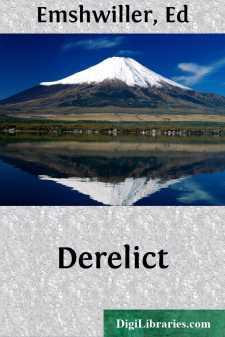Categories
- Antiques & Collectibles 13
- Architecture 36
- Art 48
- Bibles 22
- Biography & Autobiography 813
- Body, Mind & Spirit 138
- Business & Economics 28
- Children's Books 12
- Children's Fiction 9
- Computers 4
- Cooking 94
- Crafts & Hobbies 4
- Drama 346
- Education 46
- Family & Relationships 57
- Fiction 11821
- Games 19
- Gardening 17
- Health & Fitness 34
- History 1377
- House & Home 1
- Humor 147
- Juvenile Fiction 1873
- Juvenile Nonfiction 202
- Language Arts & Disciplines 88
- Law 16
- Literary Collections 686
- Literary Criticism 179
- Mathematics 13
- Medical 41
- Music 40
- Nature 179
- Non-Classifiable 1768
- Performing Arts 7
- Periodicals 1453
- Philosophy 64
- Photography 2
- Poetry 896
- Political Science 203
- Psychology 42
- Reference 154
- Religion 505
- Science 126
- Self-Help 81
- Social Science 81
- Sports & Recreation 34
- Study Aids 3
- Technology & Engineering 59
- Transportation 23
- Travel 463
- True Crime 29
The Unlearned
by: Ed Emshwiller
Categories:
Description:
Excerpt
The Chief Officer of Scientific Services, Information and Coordination was a somewhat misleading and obscure title, and Dr. Sherman Hockley who held it was not the least of those whom the title misled and sometimes obscured.
He told himself he was not a mere library administrator, although he was proud of the information files built up under his direction. They contained the essence of accumulated knowledge found to date on Earth and the extraterrestrial planets so far contacted. He didn't feel justified in claiming to be strictly a research supervisor, either, in spite of duties as top level administrator for all divisions of the National Standardization and Research Laboratories and their subsidiaries in government, industry, and education. During his term of supervision the National Laboratories had made a tremendous growth, in contrast to a previous decline.
Most of all, however, he disclaimed being a figurehead, to which all the loose strings of a vast and rambling organization could be tied. But sometimes it was quite difficult to know whether or not that was his primary assignment after all. His unrelenting efforts to keep out of the category seemed to be encountering more and more determination to push him in that direction.
Of course, this was merely the way it looked in his more bitter moments—such as the present. Normally, he had a full awareness of the paramount importance of his position, and was determined to administer it on a scale in keeping with that importance. His decision could affect the research in the world's major laboratories. Not that he was a dictator by any means, although there were times when dictation was called for. As when a dozen projects needed money and the Congress allotted enough for one or two. Somebody had to make a choice—
His major difficulty was that active researchers knew it was the Congressional Science Committee which was ultimately responsible for their bread and butter. And the Senators regarded the scientists, who did the actual work in the laboratories, as the only ones who mattered. Both groups tended to look upon Hockley's office as a sort of fulcrum in their efforts to maintain balance with each other—or as referee in their sparring for adequate control over each other.
At that, however, things research-wise were better than ever before. More funds and facilities were available. Positions in pure research were more secure.
And then, once again, rumors about Rykeman III had begun to circulate wildly a few days ago.
Since Man's achievement of extra-galactic flight, stories of Rykeman III had tantalized the world and made research scientists sick with longing when they considered the possible truth of what they heard. The planet was rumored to be a world of super-science, whose people had an answer for every research problem a man could conceive. The very few Earthmen who had been to Rykeman III confirmed the rumors. It was a paradise, according to their stories. And among other peoples of the galaxies the inhabitants of Rykeman III were acknowledged supreme in scientific achievement. None challenged them. None even approached them in abilities.
What made the situation so frustrating to Earthmen was the additional report that the Rykes were quite altruistically sharing their science with a considerable number of other worlds on a fee basis....






















